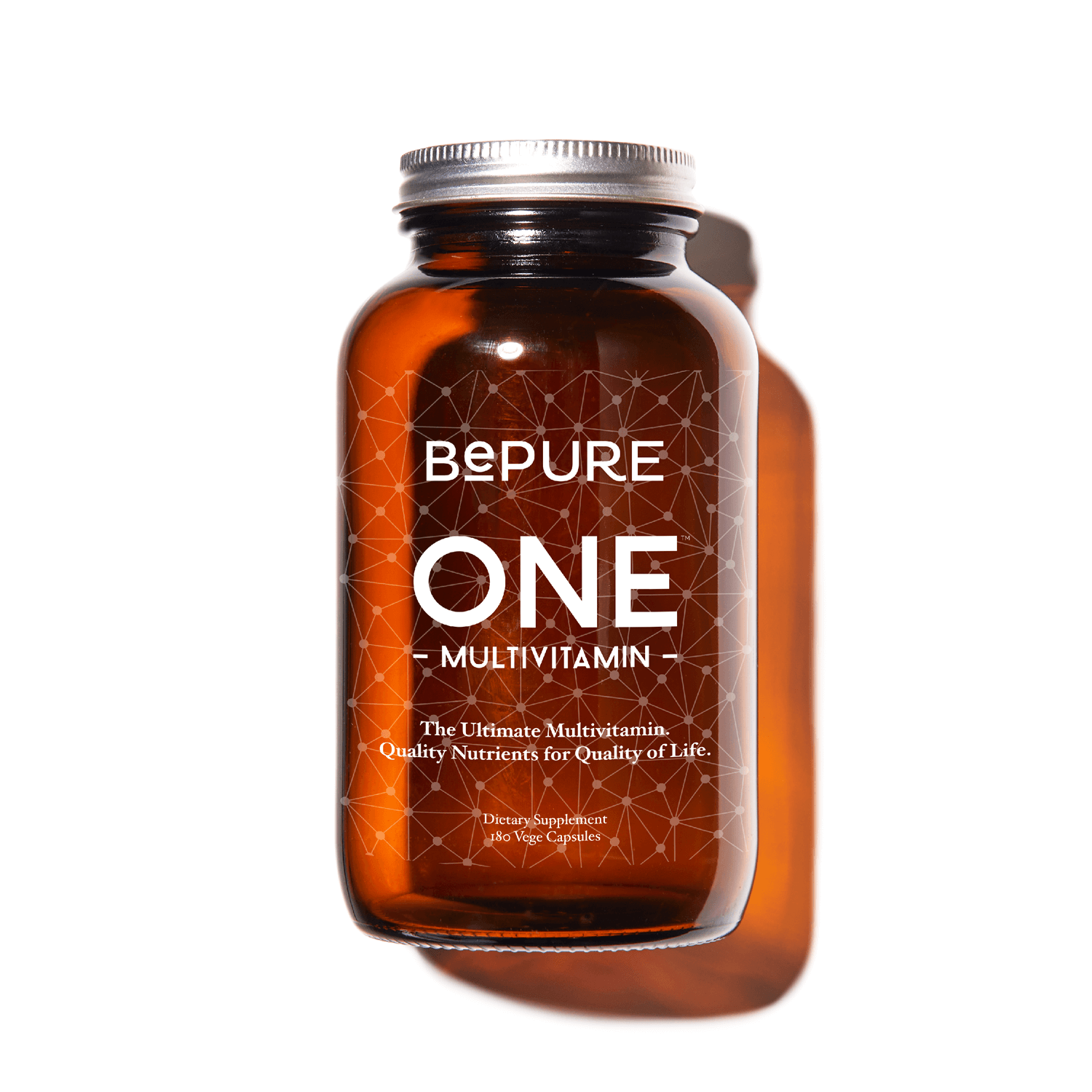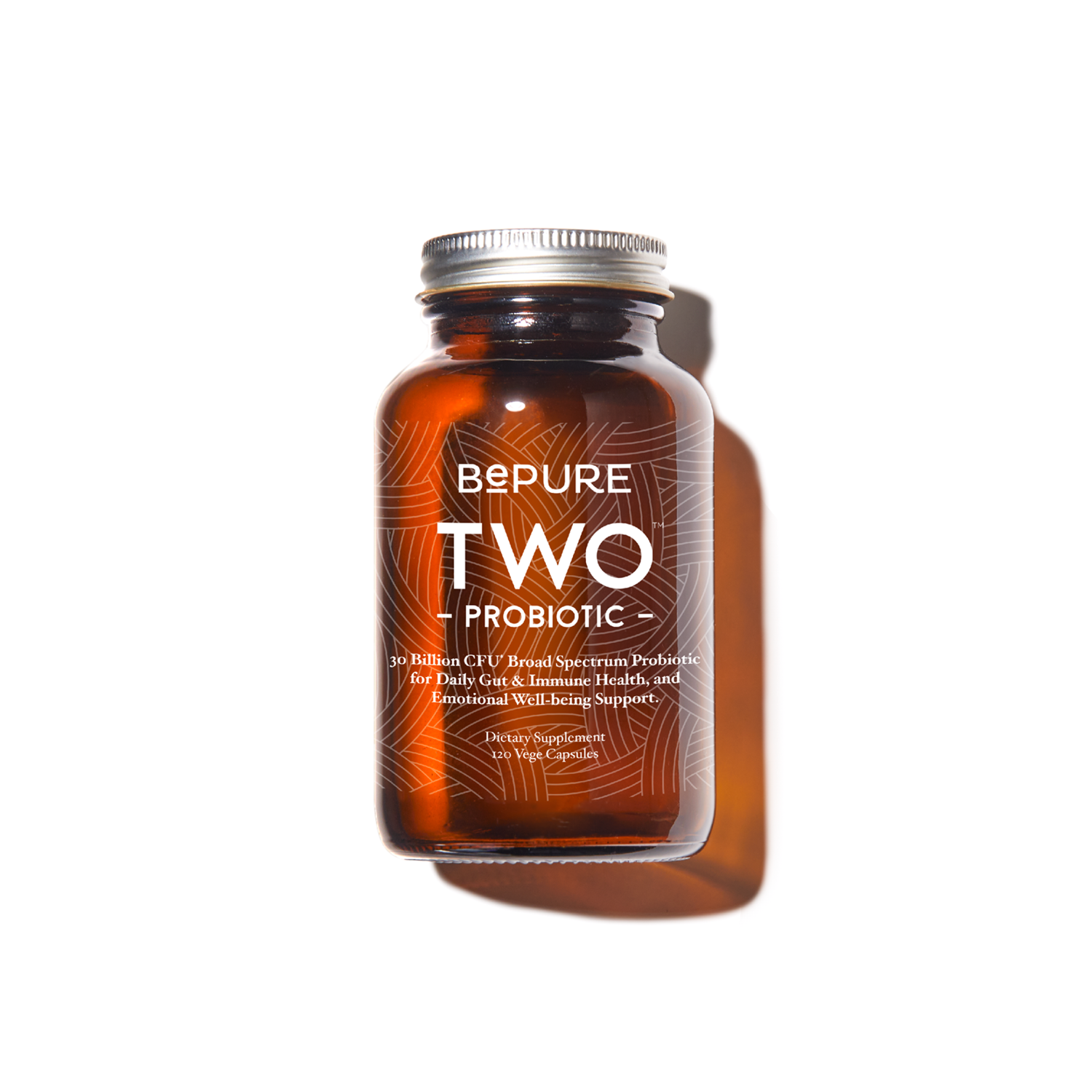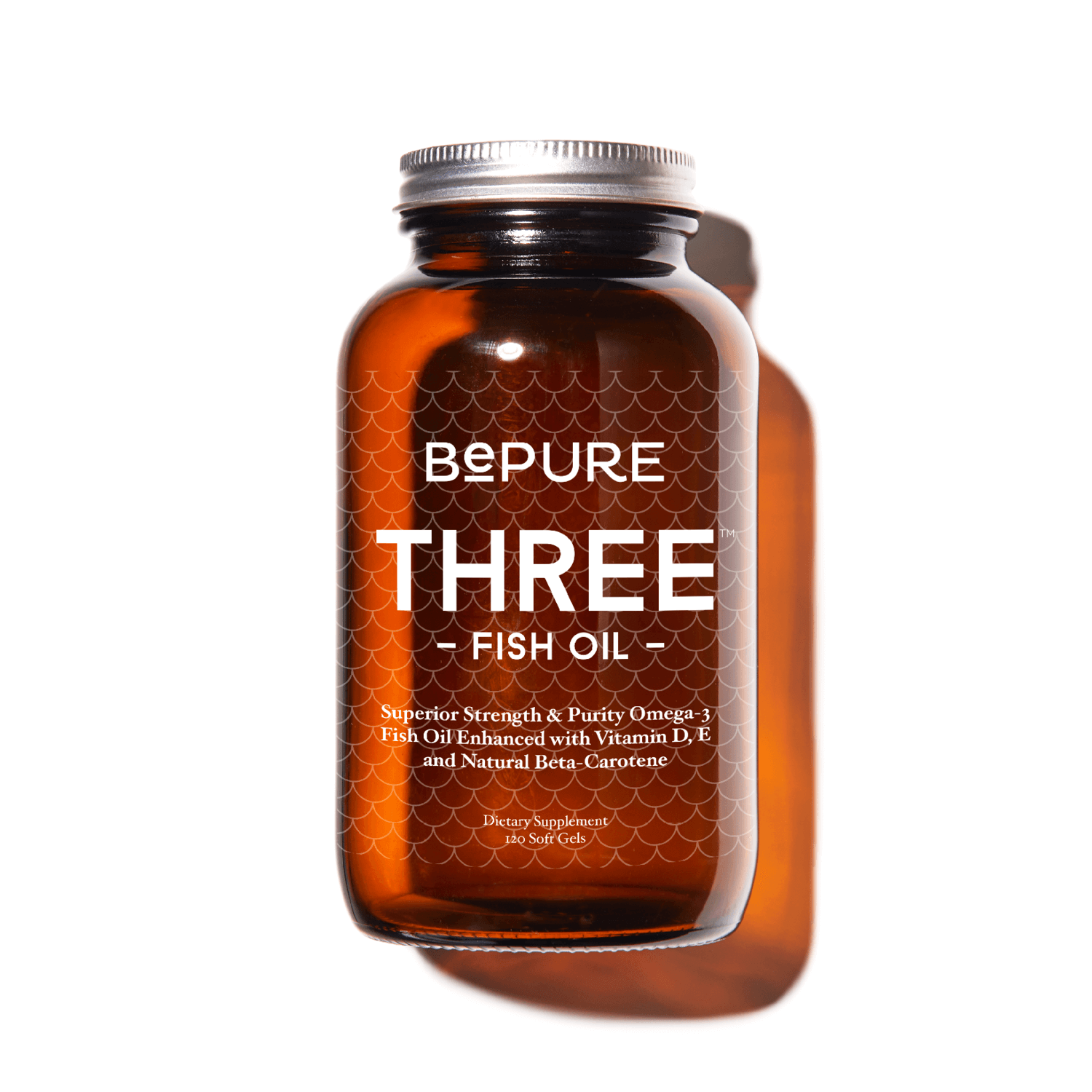It’s something that more than half our population will go through in their lifetime, but the menopausal transition is a topic that lacks presence in health education and even in conversation with our family or friends. In a recent survey of our BePure community 74% responded that they were “nervous about menopause” and unsure what to expect. 90% wish they knew more whilst experiencing it and and 67% wished they knew more before going through it.
Why is this important? The more we understand what’s going on inside our bodies at all stages of our lives the more we can embrace and support these transitions to be as smooth as possible, allowing us to live life how we want to at every stage.
Changes in weight, mood, sleep, and libido are all common during menopause, but when we know how to manage them, we have more control and may even be able to soften the experiences of the transition altogether.
So, what can we do to support ourselves for a smoother ride through menopause? First, it’s helpful to learn what everyone needs to know about menopause. From there, we can drop the fear and begin to follow a simple formula that prepares our body for the hormonal changes of menopause and live it, minus some of the less desirable side effects.
Preparing your body and hormones for the transition
When life is moving us towards menopause, we can start preparing for it in the following nine ways, grouped into three overarching themes:
- Nourishing and supporting ovulation
- Managing stress levels to support our dropping progesterone levels
- Supporting our body as oestrogen levels fluctuate and drop
By focusing on these key areas, our body can flow with the natural changes that occur during the menopausal transition, rather than against them. Throughout the menopausal transition, stress is the most important factor to keep in check - we will explain why later on!
Firstly nourishing and supporting ovulation in early menopause (aka Perimenopause)
Perimenopause, for most, begins around age 45. Initially it is quite hard to define and looks a lot like PMS with longer or shorter menstrual cycles or an increase in PMS symptoms leading into their monthly bleed.
An anovulatory cycle is when you have a period but an egg is not released - you do not ovulate and this leads to lowered progesterone levels. It is for this reason that the hallmarks of the peri-menopausal experience can be PMS-like symptoms and irregular periods. During this time our ovaries are trying to ovulate, which leads to surges of oestrogen and is why you still have a monthly (or near-monthly) bleed in perimenopause.
Doing all we can to support ovulation is the best way to help in this phase and using herbs and nutrients to help this along can make a big difference. Look out for herbs such as Vitex, Cramp Bark and Peony, along with adrenal supporting herbs like Ashwagandha and Rhodiola to help ovulation along, boost progesterone, and aid a calm, PMS free, regular cycle. All of these nourishing herbs can be found in BePure’s CycleCalm.
Secondly, care for our nervous system with diet and lifestyle habits
When we no longer have any eggs to ovulate and make hormones, our ovaries ‘go offline’, winding down the reproductive stage of life. The body then no longer produces enough oestrogen and progesterone which can hinder our ability to cope with stress. Things like brain fog become a real thing and mood and energy levels can seesaw. So, the aim here is to nourish our nervous system to set our bodies up to cope with the drop in oestrogen and progesterone. Here are a few helpful ways to do this:
1. Eat right for your unique body and needs
We are all unique, both in genetics and in our lifestyle. Because of this, what food one of us thrives on can be different to another. When finding what’s best for you, it’s about choosing foods that stabilise your blood sugar levels and keep you full the longest. If you’re unsure on where to start, try taking the ‘What Should I Eat’ quiz to find what combination of protein, carbs and fats best serve your body. Stabilising our blood sugar levels with what we eat is a sure way to nourish our nervous system.
2. Exercise right for you
We all know we should be exercising daily, but how we exercise is just as important. The purpose of exercise is to help balance out our stress levels and maintain our muscle mass. So if we are well-slept with low stress in our day-to-day life, pumping our body with a HIIT class will reap huge benefits. But, if we are already tapped out on stress, choosing more restorative exercise like yin yoga or walks will serve you and your nervous system a lot more.
You may also want to ease your stress levels by trying a style of exercise focused on fun, like zumba or dance classes. Creative activities that also connect us with others lower our stress levels and generally leaves us wanting more.
3. Slow down on the grains and sugar
During menopause our body doesn’t cope well with processed and simple carbohydrates. These are things like processed grains (yes bread) and sugar. Because our hormones do need carbohydrates to keep balanced, try swapping these for slow burning carbohydrates like brown rice, pumpkin and kumara and see if you notice a positive difference.You can also opt for natural sweeteners as you need them, such as dates and honey (although reducing these is also helpful!)
Complex carbohydrates are great if consumed in the right quantities. Your sleep, hunger, energy, mood, and cravings are also a great indicator of eating right for you - take note of what you’re eating when you feel your best.
A handy tip: You will know you have eaten the right ratio of carbs to fats and proteins if you are full for 4-5 hours after eating. Have fun experimenting with what works for you!
4. Aim for 7 - 9 hours of good quality sleep every night
While not always possible, (can you say ‘keeping one ear out for the kids’?) sleep deprivation adds up. Making sleep a priority and sleeping in on the weekend or letting your body rest when needed can help to restore missed sleep. If you struggle with sleep, try an online yoga nidra session which relaxes our body immensely. We need this time to rest, digest, and to maintain good mental health, blood sugar levels and physical wellbeing. This is important for all stages of life but is especially important in menopause!
Thirdly, we need to support declining oestrogen levels (H2)
Dropping and fluctuating oestrogen levels are one of the main reasons you may experience hot flushes, night sweats and weight gain during menopause. Here are a few things to help make this change a little smoother.
5. Think twice about caffeine and alcohol
No surprises here but caffeine and alcohol are our two biggest triggers for hot flushes and sleep disruption. Although much loved for their pick me up and alternative calm down and relax qualities, coffee and alcohol add a lot off stress to our body, raising cortisol levels. They require a lot of detox resources to rid us of them andalso affect our deep, restorative sleep. When we slow down on these (or cut them altogether) we can look forward to: more balanced hormones, great sleep, fewer hot flushes and balanced mental wellbeing.
6. Prioritise nutrients
We need nutrients to produce and react to hormones. If we think of our hormones like a plant in the garden, they need to be well-fed to act normally and blossom. If we don’t feed them, it can lead to some erratic behaviour from our hormones which leads to things like hot flushes. BePure One is a high quality multivitamin which will provide you with all the vitamins, minerals, and antioxidants your body needs to support your body during this transition.
7. Get comfy with nourishing herbs
Herbs like ashwagandha, black cohosh root, and sage leaf can be so beneficial for the signs of menopause. They promote good sleep, better energy, and the easing of hot flushes. All three of these herbs - plus liver-loving choline, and mood-boosting chromium - are the main ingredients in our menopausal hero product MenoCalm. Plus, it’s suitable for vegans and vegetarians!
8. Love your gut
In menopause, we experience a change in the balance of our microbiome - both gut and vaginal. The latter is what leads to candida infections. Oral probiotics support both the vaginal and gut microbiome by adding in more of the ‘good guys’. BePure Two has 19 different strains of more than 30 billion good bacteria - it is practically a multivitamin for your gut.
So, what’s next?
- Support regular ovulation by nourishing your progesterone levels with CycleCalm.
- Nourish your body: Try eating a good mix of protein and complex carbohydrates as well as a high quality multivitamin and adrenal-loving herbs
- Prioritise sleep, mindfulness and exercise so your body can rest, digest, and heal as well as balancing our stress levels



